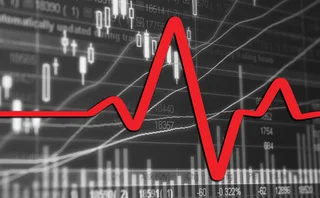Opening Cross: News Isn’t Extinct, It’s Just Evolving

“Reports of my death have been greatly exaggerated,” insists the news industry. In last week’s issue, we broke the story of Alliance News, a new newswire service focusing on the UK market, which the vendor believes has become under-served by news providers. This week, we report on another newswire launching a new service intended to provide specialist news and commentary for FX traders.
News has gotten a bad rap in recent years, with some questioning why they would pay for something they can find using Google—disregarding the fact that you may still have to pay to access that news—while others find more value in analysis of events than in the breaking news itself, where consumers want to be told not just what happened, but how it will impact them. Analysis and opinions in this instance doesn’t mean the partisan “reporting” you might see on TV, but independent, informed commentary from people who have been around the industry longer than many traders.
More recently, it emerged that Thomson Reuters had been releasing news of the University of Michigan’s consumer sentiment survey early to high-frequency traders before the rest of its clients.
In this instance, news is distilled into key numerical values that can be compared to pre-set assumptions of what those values will be, so an algorithmic trading system can place trades accordingly. In some cases, firms are taking this to the next step, incorporating sentiment analysis to determine how much news will impact price movements.
In other cases, firms are reluctant to implement sentiment or Big Data analytics—as evidenced by a panel discussion at last week’s Buy-Side Technology North American Summit, where executives balked at the idea of using Big Data to perform Google-style analytics, saying asset managers need more rigorous data management in place before implementing Big Data strategies.
While commentary services are aimed at human traders with the need for and ability to understand an interpretation of an event, machine-readable news relies on services that translate news into digital “events” or signals, such as Selerity, which takes information on unstructured events such as company financial results or the results of drug trials, and translates them into structured values to be incorporated into automated trading strategies.
In addition, the kind of digital “events” that firms want to monitor aren’t limited to macroeconomic announcements or company earnings. In some ways, events relating to the infrastructures and networks that carry the signals can be more critical to the effectiveness of modern trading strategies where every microsecond counts. Hence systems monitoring platforms are rising in prominence, with vendors such as Corvil expanding and adapting platforms originally developed for monitoring specific elements of overall technical performance to monitor other features and functions in real time. For example, Corvil will this week announce a raft of deals for its risk and compliance monitoring service, which is based on its original CorvilNet latency monitoring platform.
“The problem that many firms were encountering is that while they have risk monitoring and compliance management systems in place, they were designed, built and architected for a bygone age—largely for the paradigm of floor-based trading, whereas now most trading is machine-based. The big challenge is that these systems were not designed to detect the type of events and anomalies that are now happening and causing problems,” Corvil chief executive Donal Byrne tells IMD reporter Faye Kilburn.
The Knight Capital debacle and the Flash Crash are two high-profile instances of this, but not the only ones. Hence, “news” about your systems’ trading performance can be as important as the news that prompts the trade in the first place, as, in each case, is understanding the impact of that “news” as the concept of what it includes continues to evolve.
Only users who have a paid subscription or are part of a corporate subscription are able to print or copy content.
To access these options, along with all other subscription benefits, please contact info@waterstechnology.com or view our subscription options here: http://subscriptions.waterstechnology.com/subscribe
You are currently unable to print this content. Please contact info@waterstechnology.com to find out more.
You are currently unable to copy this content. Please contact info@waterstechnology.com to find out more.
Copyright Infopro Digital Limited. All rights reserved.
You may share this content using our article tools. Printing this content is for the sole use of the Authorised User (named subscriber), as outlined in our terms and conditions - https://www.infopro-insight.com/terms-conditions/insight-subscriptions/
If you would like to purchase additional rights please email info@waterstechnology.com
Copyright Infopro Digital Limited. All rights reserved.
You may share this content using our article tools. Copying this content is for the sole use of the Authorised User (named subscriber), as outlined in our terms and conditions - https://www.infopro-insight.com/terms-conditions/insight-subscriptions/
If you would like to purchase additional rights please email info@waterstechnology.com
More on Emerging Technologies
Liquidnet sees electronic future for gray bond trading
TP Icap’s gray market bond trading unit has more than doubled transactions in the first quarter of 2024.
Verafin launches genAI copilot for fincrime investigators
Features include document summarization and improved research tools.
Waters Wrap: Open source and storm clouds on the horizon
Regulators and politicians in America and Europe are increasingly concerned about AI—and, by extension, open-source development. Anthony says there are real reasons for concern.
Waters Wavelength Podcast: Broadridge’s Joseph Lo on GPTs
Joseph Lo, head of enterprise platforms at Broadridge, joins the podcast to discuss AI tools.
Man Group CTO eyes ‘significant impact’ for genAI across the fund
Man Group’s Gary Collier discussed the potential merits of and use cases for generative AI across the business at an event in London hosted by Bloomberg.
BNY Mellon deploys Nvidia DGX SuperPOD, identifies hundreds of AI use cases
BNY Mellon says it is the first bank to deploy Nvidia’s AI datacenter infrastructure, as it joins an increasing number of Wall Street firms that are embracing AI technologies.
This Week: Linedata acquires DreamQuark, Tradeweb, Rimes, Genesis, and more
A summary of some of the latest financial technology news.
Systematic tools gain favor in fixed income
Automation is enabling systematic strategies in fixed income that were previously reserved for equities trading. The tech gap between the two may be closing, but differences remain.
Most read
- Chris Edmonds takes the reins at ICE Fixed Income and Data Services
- Deutsche Börse democratizes data with Marketplace offering
- Waters Wavelength Podcast: Broadridge’s Joseph Lo on GPTs








